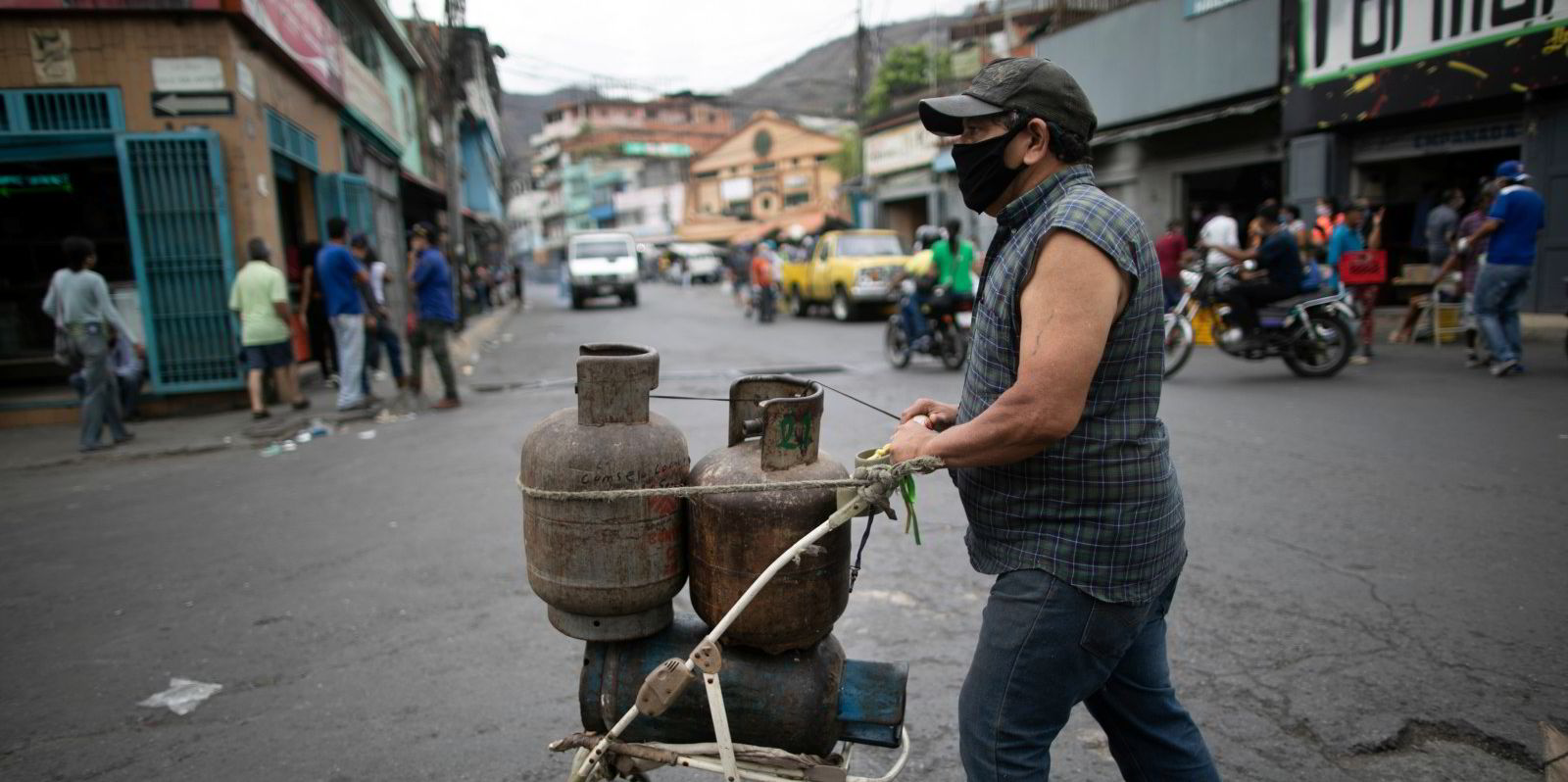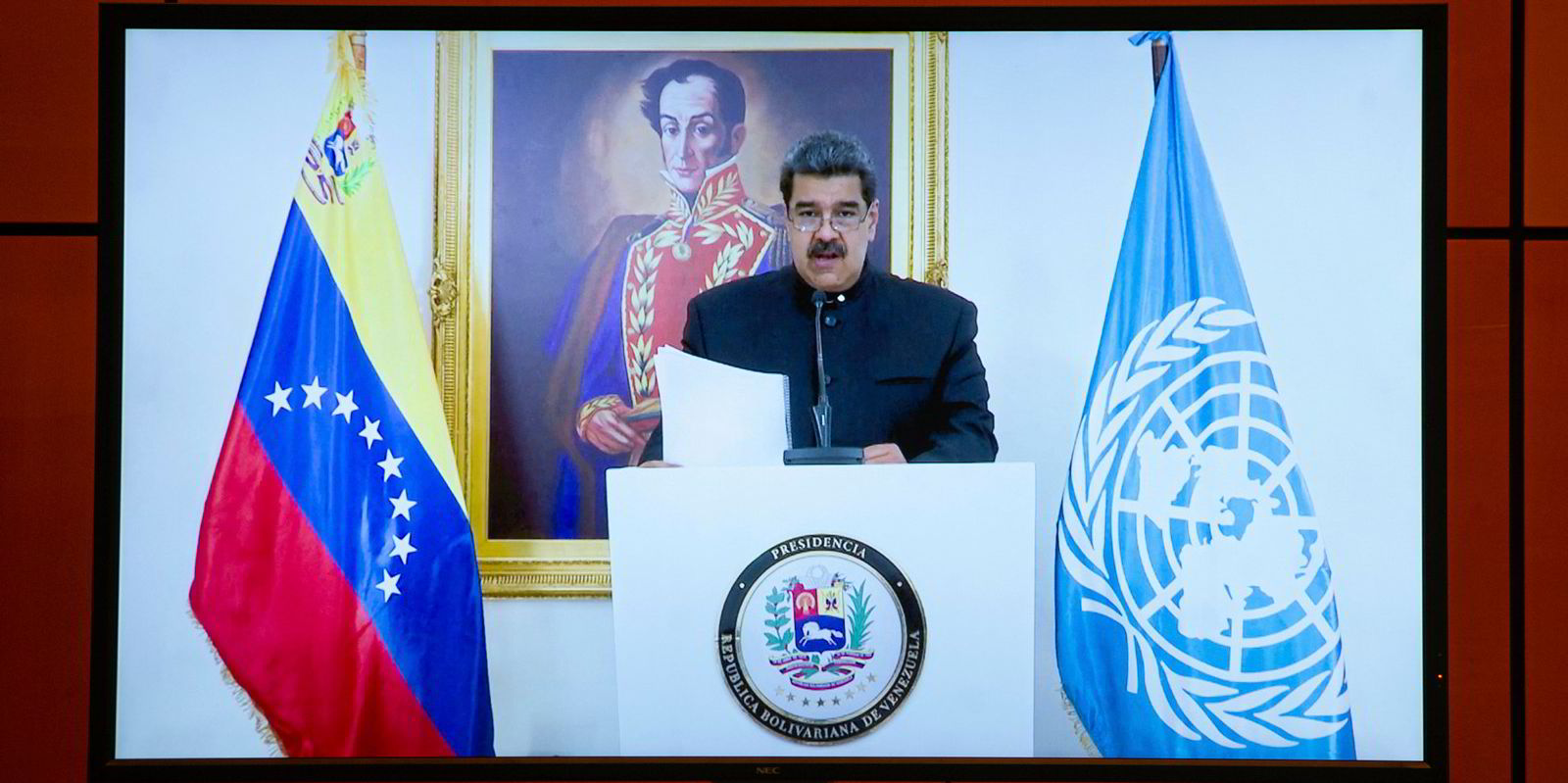Small and mid-size gas carriers could find more employment opportunities after the US lifted sanctions on LPG exports to Venezuela, according to an analyst at cargo intelligence provider Kpler.
Washington recently announced that LPG shipments to the South American country would be allowed under its sanctions scheme targeting Petroleos de Venezuela SA (PDVSA) from 12 July.
Kpler analyst Charles Costerousse told TradeWinds LPG cargoes to Venezuela were mostly transported by mid-size gas carriers of between 32,000 cbm and 49,000 cbm and handysize vessels between 15,000 cbm and 31,000 cbm.
“I would assume those vessel classes would be more affected,” Costerousse added.
Venezuela’s LPG imports peaked at 632,000 tonnes in 2016 before falling to 333,000 tonnes in 2017 and 293,000 tonnes in 2018, Kpler data showed.
Sanctions risk
The volumes fell to 55,000 tonnes in 2019 and zero last year as LPG suppliers steered away from the country amid sanctions risks.
Nearly all of the LPG cargoes were shipping from the US and Caribbean nations.
“Most LPG imports into Venezuela were done via multiple STS [ship-to-ship] operations so it may be harder to assess the exact impact on the freight market,” Costerousse said.
With Venezuela’s LPG imports being “very sporadic” even before Washington ramped up sanctions on the country’s petroleum sector in recent years, any freight impact from the US relief would likely be unsubstantial, he added.
The sanctions relief is seen as President Joe Biden’s humanitarian gesture as many Venezuelans are reportedly forced to cook on charcoal or firewood due to gas shortage.
But the Biden administration also stated that LPG suppliers are not allowed to swap gas for Venezuela’s crude and petroleum products.
The Venezuelan government may have little incentive to hike LPG imports immediately due to limited cash reserves, and its creditworthiness is questioned by US traders, Argus Media reported.
Softening of stance
The relief “may indicate a slight softening of the Biden administration’s stance towards Venezuela and also towards PDVSA,” law firm Freehill Hogan & Mahar said in a client note.
“That said, we continue to believe that all transactions involving Venezuela carry risk, and the sanctions landscape with respect to this area remains very fluid.”
In defiance of US sanctions, Venezuela raised oil exports to 460,667 barrels per day (bpd) in June amid rising production, Bloomberg estimated.
Caracas reportedly aims to raise crude output to 1.5m bpd by year end, but few expect the goal to be reached.






